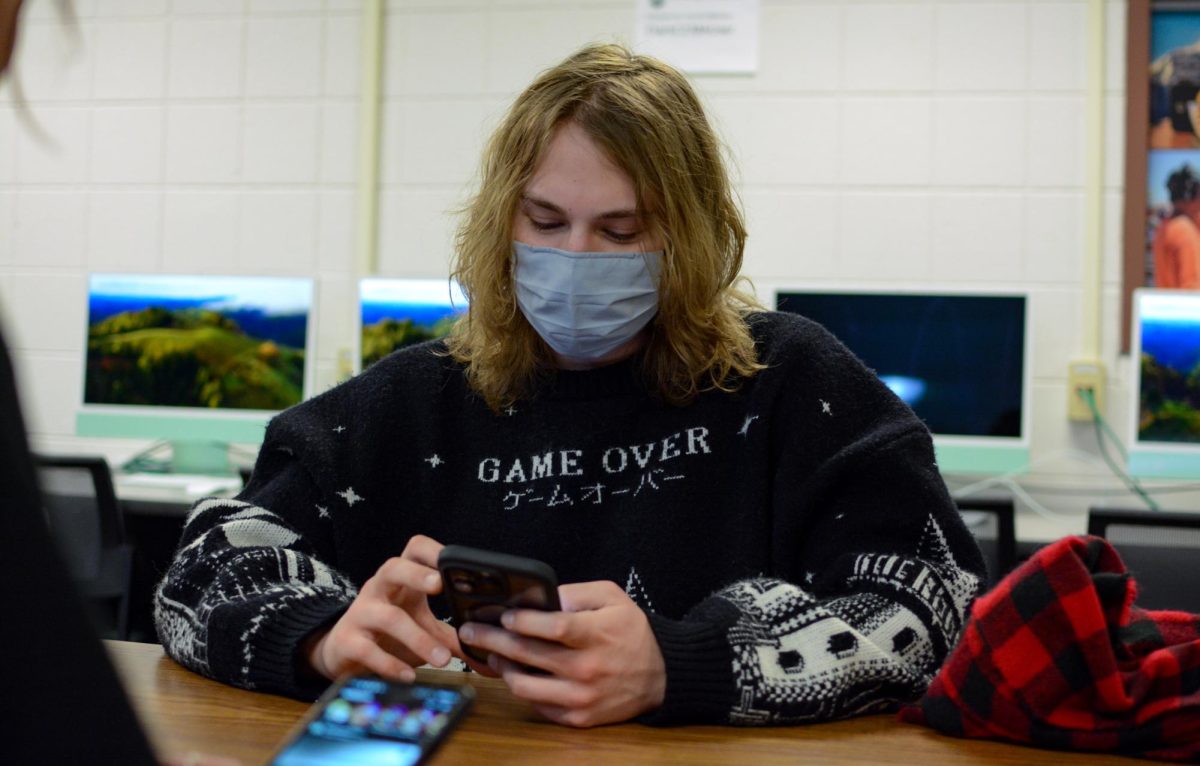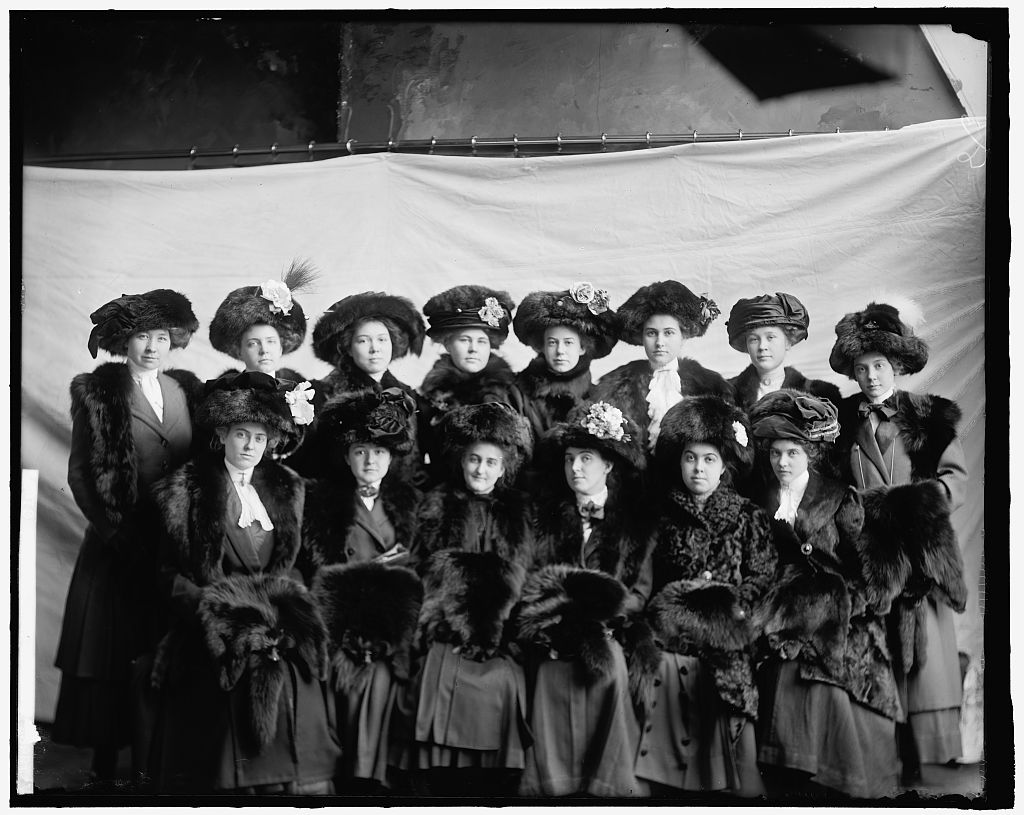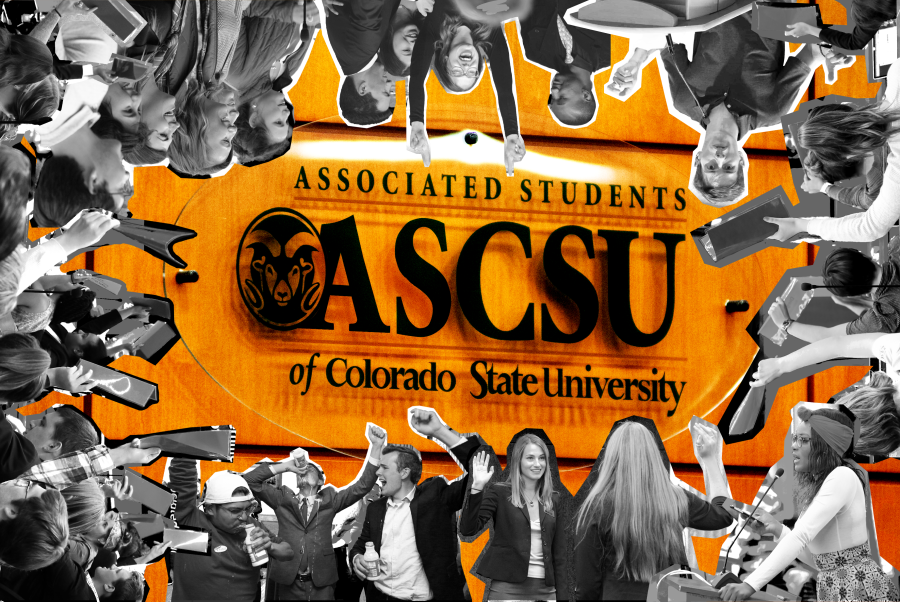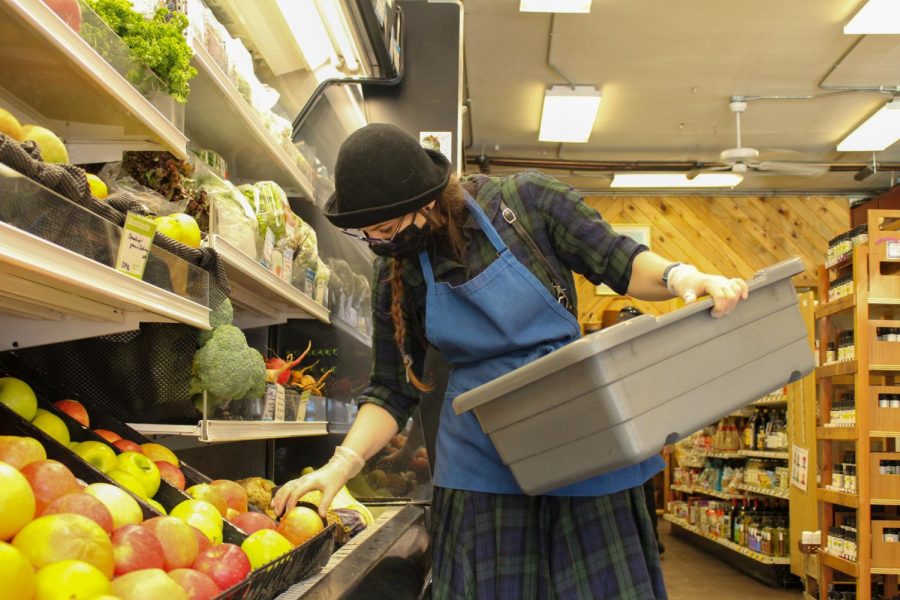The Associated Students of Colorado State University (ASCSU) impacts all students on campus. Many have heard of the student government organization, but its functions, purpose, and most importantly, impact, are lesser known.
By acting as the bridge between the administration and the students, ASCSU has the power and resources to make change. Though, the unawareness and disengagement from the student body can potentially hinder the purpose of ASCSU to represent all voices.
The Process of ASCSU
Even though each full-time student pays around $24.45 in student fees to ASCSU, voter turnout exposes high levels of disengagement with the student government. The September 2020 elections showed lower voter participation rates than previous years at 15.33%. Though, the pandemic and the postponement of the elections from spring potentially contributed to the low percentage, the 2019-2020 election had the record breaking rate of only 26.6%.
During each election, a new president, vice president, speaker of the senate, and senators are appointed.
Each incoming administration gets a budget approved for the year. These are typically around $57 million from student fees, according to the ASCSU website. Using these funds, the student government distributes funds to 19 areas such as student media, athletics, transportation projects and ASCSU itself.
Much like the federal government, the ASCSU also has an executive, legislative, and judicial branch. The student government houses several committees and around 39 senators and 20 associated senators. While senators and associated senators are both present for meetings, associated senators cannot vote, do not have to be elected, and primarily help senators.
Due to COVID-19, each Wednesday meeting is now held over Zoom to discuss legislation and still are open to the public. During these meetings, senators come together to pass bills and resolutions on critical issues.

“It’s pretty easy to write a bill,” says Ava McCall, senator for the College of Liberal Arts. “We have a bill template, and somebody thinks of an idea and writes it. You just need students and a few people that represent ASCSU to sign on it.”
A bill needs to get the proper endorsements before presented for the Senate. After the first reading, the legislation then gets sent to one of the committees for amendments. A bill requiring money will get sent to the Student Fee Review Board. This committee serves to assess and approve budgetary proposals and changes from all student-fee organizations. Lastly, it will go back to the Senate, get voted on, and then sent to whoever was listed on the bill. This usually involves those in higher administration.
Although it is easy to write a bill, many go unpassed.
“I’ve only been in the Senate for one year, but in my experience, we’ve had a really hard time passing bills,” McCall says. “It’s really frustrating for those in the senate, but also because my student fees are a part of this.”
The ASCSU website has a legislation tracker to see the progress of bills as they go through the senate. Although, the last update was in January.
The Impact of ASCSU
Through these processes, students have mixed opinions regarding ASCSU’s impact.
On one hand, the student government has been very successful in the past for allocating small changes within campus, McCall says when reflecting on the 2019-2020 school year. ASCSU has had success in smaller achievements, while larger issues have been harder to address.
“We put in a lot of money in flu shots, awareness programs, and pocket pantries,” McCall says. “We gave money to Ram Ride because the tops on their cars were not lighting up. It was a lot of small stuff because one of the biggest bills, the Giants Bill, got rejected.”
One notable piece of legislation includes the 2018 Water Bottle Bill, which stood to install water bottle refilling stations across campus and provided concrete results of higher water accessibility.
ASCSU also increased tailgating attendance in 2017. When the location changed from Hughes Stadium to the on-campus stadium, more rules and regulations were put in place. ASCSU incentivized students by handing out free shirts and soda to increase participation.
However, despite these successes, ASCSU has had shortcomings. The general unfamiliarity of ASCSU can be thought of a weakness in itself.
“I do not think ASCSU is doing its job unless most of the student body knows what ASCSU is.” — Hannah Taylor, ASCSU president
“I don’t think ASCSU as an organization has maximized all of its resources to reach students; I think it’s honestly kind of a failure on the organization’s part,” says Hannah Taylor, the newly elected student body president of ASCSU. “I do not think ASCSU is doing its job unless most of the student body knows what ASCSU is. Its sole purpose is to be a voice for the students. And so I think that I won’t feel like we’ve maximized all of our opportunities or resources that we have until every single student feels impacted by our policies.”
Consistency has proven to be a downfall for ASCSU’s impact. For Taylor, the lack of uniformity throughout different administrations hinders the progression of certain issues, such as U+2.
U+2 has been an issue over the last several years and pertains to the City’s restriction of only having three people living in a house at one time.
“I absolutely do think that the previous administration lost momentum as far as changing U+2 because one of the first things they did was they got rid of the strategists that the Syron-Sullivan administration had employed,” Taylor says.
This strategist, along with consistent meetings with the city, were critical in applying pressure to the city for changing U+2 policies.
“As soon as you stop trying to build those relationships, especially when you don’t have them going in, then there’s not a lot of negotiations that are going to happen because it takes a minute to even establish relationships in the first place,” Taylor says.
Taylor plans on rehiring a strategist and using her current relationships with the City to reprioritize U+2.
While Taylor emphasized the impact ASCSU has on speaking for the student body as Fort Collins constituents, changing City policies is ultimately very difficult.
“[The last administration] had local government meetings, but I still think they weren’t really able to get anything done,” McCall says. “Essentially all that we can do is endorse the idea.”
However, according to student leaders, ASCSU’s pressure has the potential to make a large impact on changing City policies and raising awareness for campus-related issues.
Along with U+2, diversity and inclusion proved to be another urgent matter within the last year. CSU has a history of racist incidents, with a fake noose being found in 2017 and students doing blackface in 2019 as just a few of many targeted acts.
ASCSU has not been exempted from racial controversy. For Savannah Overturf, senator for the College of Liberal Arts, diversity needs to be first addressed within ASCSU before reaching its potential externally.
“I would love some inclusion training first in ASCSU because I don’t think we could hugely do something about it when our people come in and do things,” Overturf says. “For example, last year, we had a Halloween party. A senator thought it was appropriate to come in with blackface.”
He was removed from the session, but not from his position.
The Future of ASCSU

Despite these shortcomings of ASCSU, the new administration has high hopes for maximizing ASCSU’s resources to reach a wider range of students.
COVID-19 relief is one critical issue the new governmental leaders want to target.
“We want to make sure we respond to how students have been affected mentally, physically and emotionally from COVID-19,” Taylor says. “We want to start immediately by handing things out like masks, hand sanitizers and thermometers, so that students are not only accurately filling out their symptom checkers but also have access to a thermometer, masks and hand sanitizers.”
Christian Dykson, the newly elected Speaker of the Senate, shares this goal of providing maximum support from the pandemic.
“What we know about COVID is that it magnifies pre-existing problems,” Dykson says. “A good example would be students who are socioeconomically disadvantaged and don’t have access to their own laptop or don’t have access to consistent Wi Fi.”
For Dykson, providing COVID-19 relief also means to focus on the intersecting problems, such as socioeconomic challenges.
Along with COVID-19, diversity and inclusion is another focal point for the 2020-2021 school year. Primarily, the new leadership wants to create inclusion training within ASCSU to create a more inclusive environment.
“I think there should be at least two workshops that all ASCSU members, more than just the cabinet, have to attend and learn about how to represent students with different identities because this is how your peers feel in this office,” Taylor says.
Along with these diversity trainings, they plan on using new resources with hopes to expand ASCSU’s impact.
“First, for me, it is democratizing the access to change making.” — Christian Dykson, ASCSU speaker of the Senate
“First, for me, it is democratizing the access to change making,” Dykson says. “I brought into my campaign the idea called microlegislation. It’s the idea that you shouldn’t have to know somebody in ASCSU or in the real government in order to make that change.
“Microlegislation is as simple as you tell us the problem, what’s your solution, how much funding will you need, and it immediately becomes a bill in student government. It could go through the queue, it could go through the committee process, it could be passed, and you could get an email saying it was passed without you having to directly be a part of the process.”
Through this new way of legislation, Dykson plans on focusing on the experiences of all students on campus. For him, outreach is key. During the pandemic, this means more virtual office hours and open senate meetings for the public.
“There are two approaches,” Dykson says. “You can educate people and you can invite them. I think with regard to making lasting change, you have to invite people into it, you can educate them on the process, but you can invite them into an alternate mindset, a new framework, a new approach. I think that’s where the Senate and the student government comes in.”
As Dykson outlines, ASCSU has a large potential to impact the student body through more accessibility. These changes could increase the overall awareness of the student government and maximize its impact of aligning the goals of students and administration.
Taylor ultimately hopes to increase the government’s ability to act as a voice for the student body.
“There are a lot of things that I care about that I think students have been affected by year after year, nothing changes,” Taylor says. “And so that is what motivated me to do it myself. And so I think that’s what interests me the most about this position is to go in personally and with the experience that I have and give everything I have to help students.”
College Avenue Contributor Cecilia Apodaca can be reached at editor@collegeavemag.com.





































